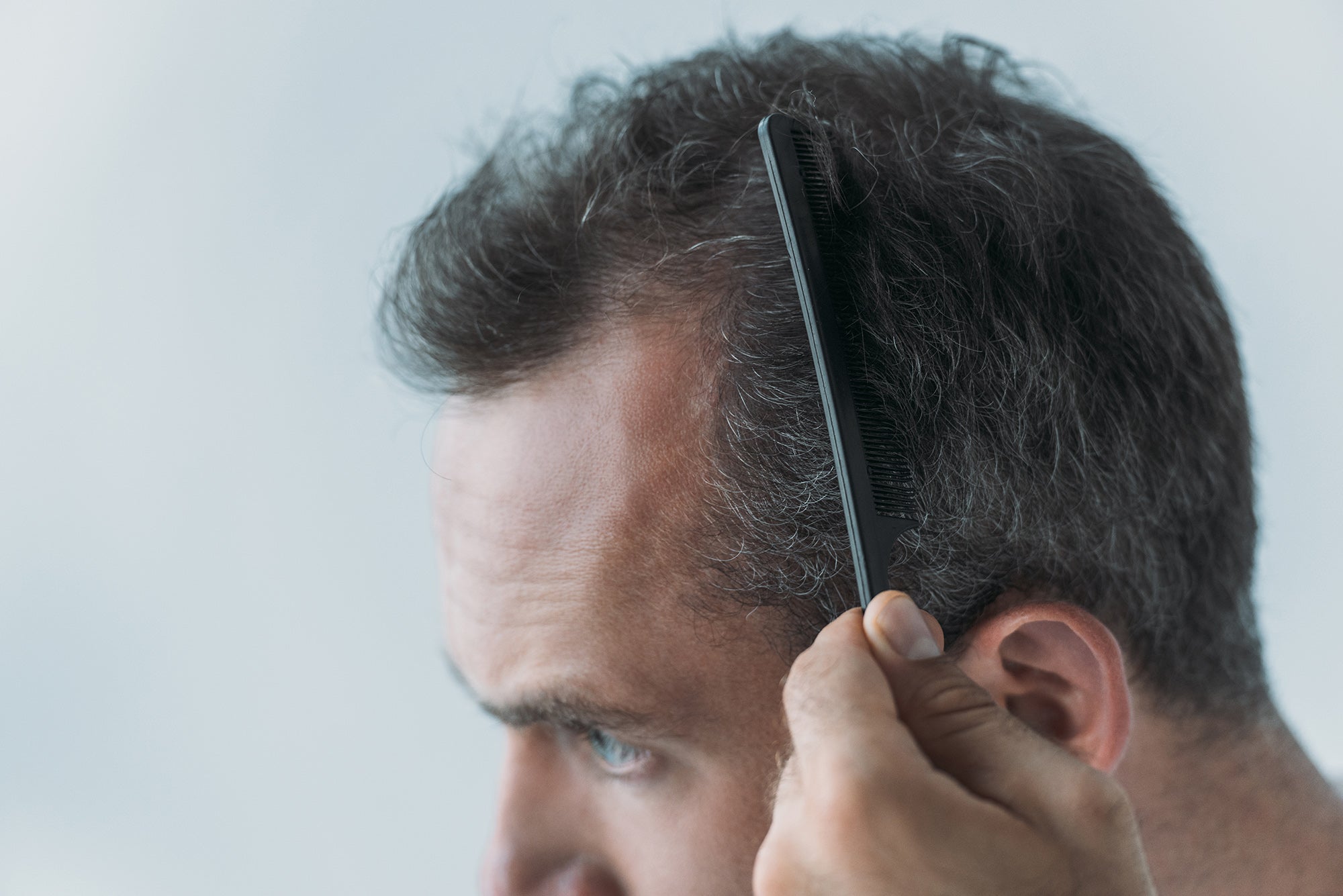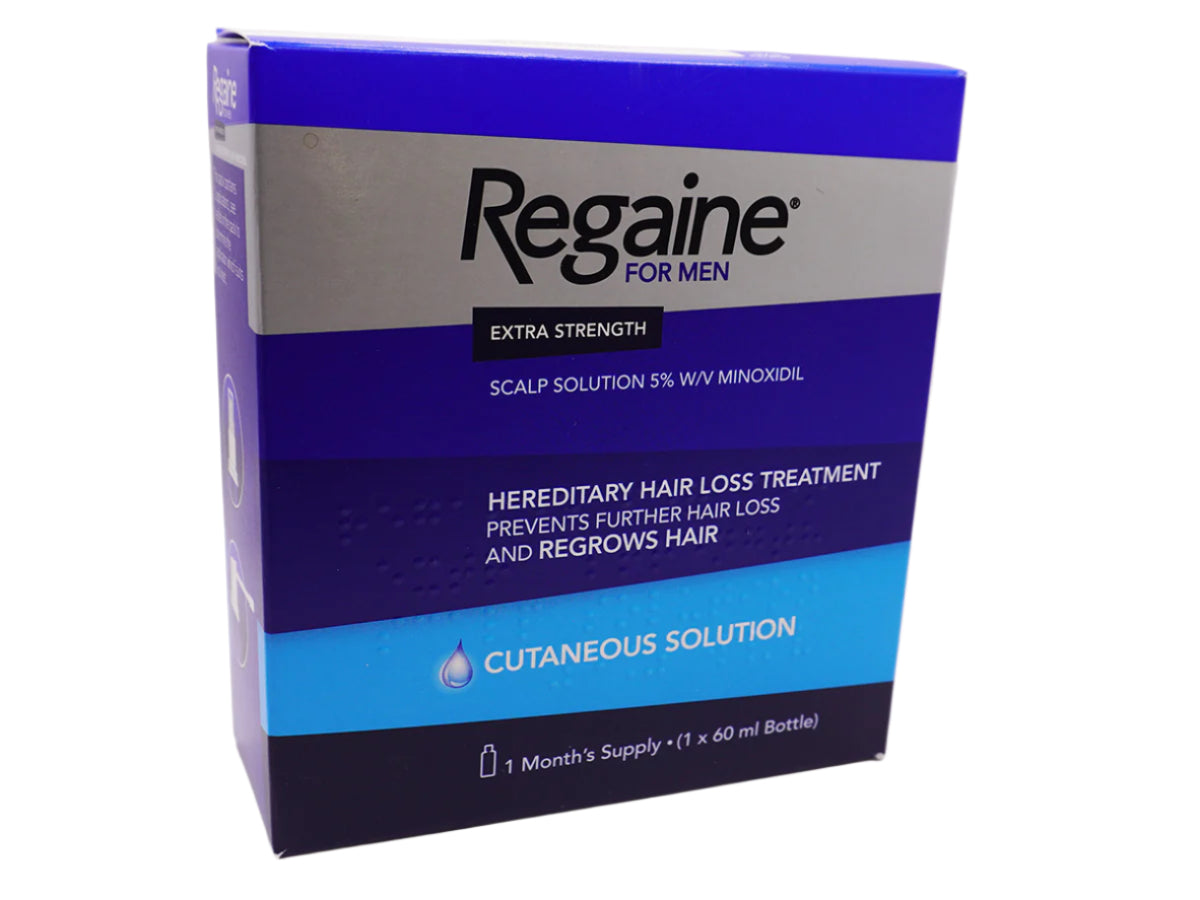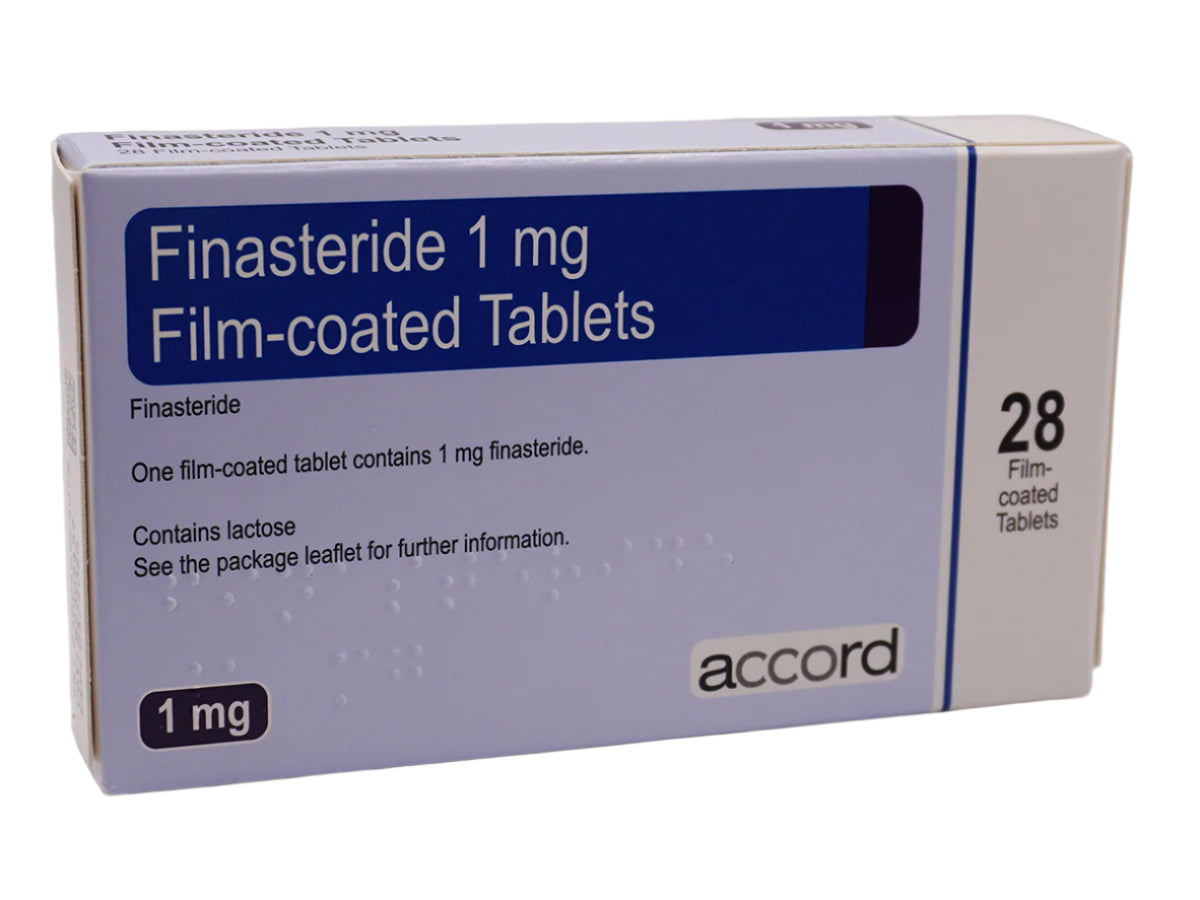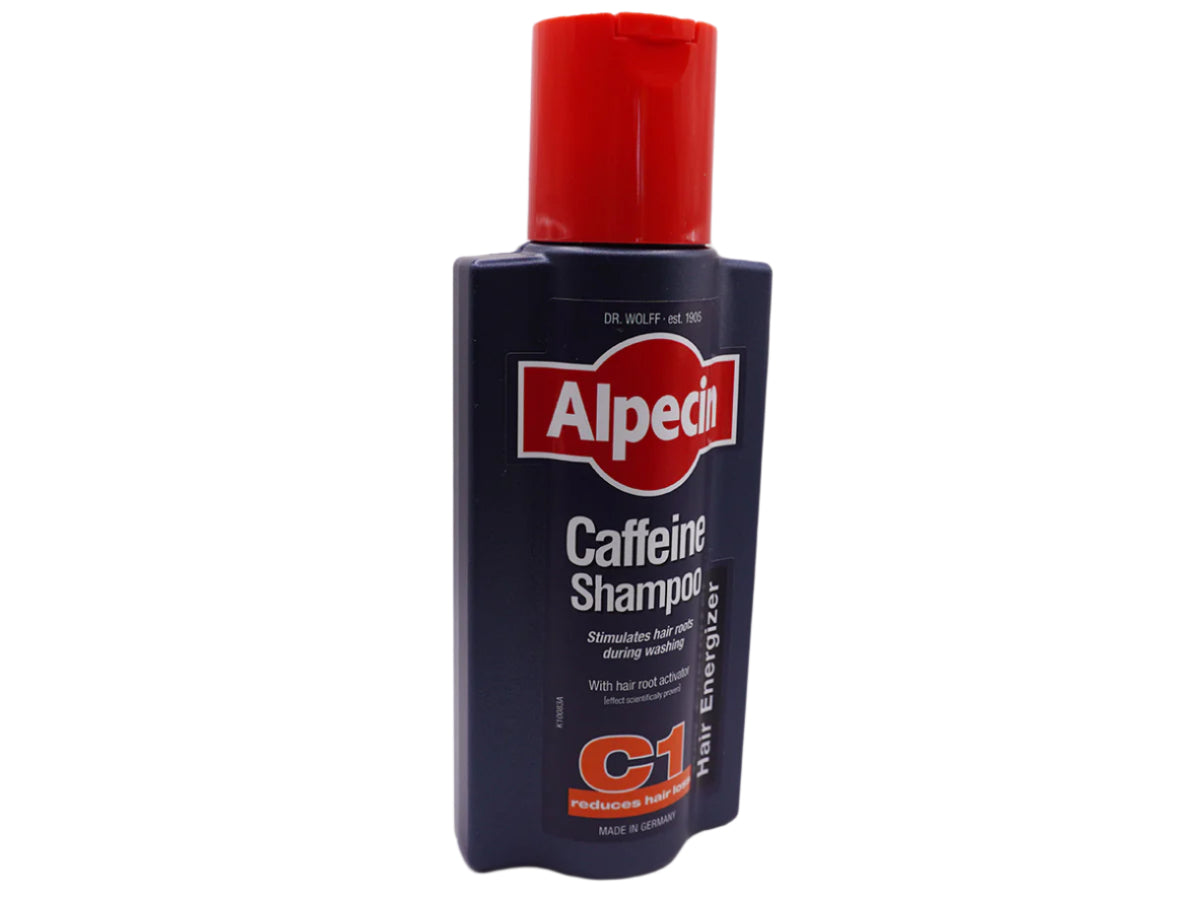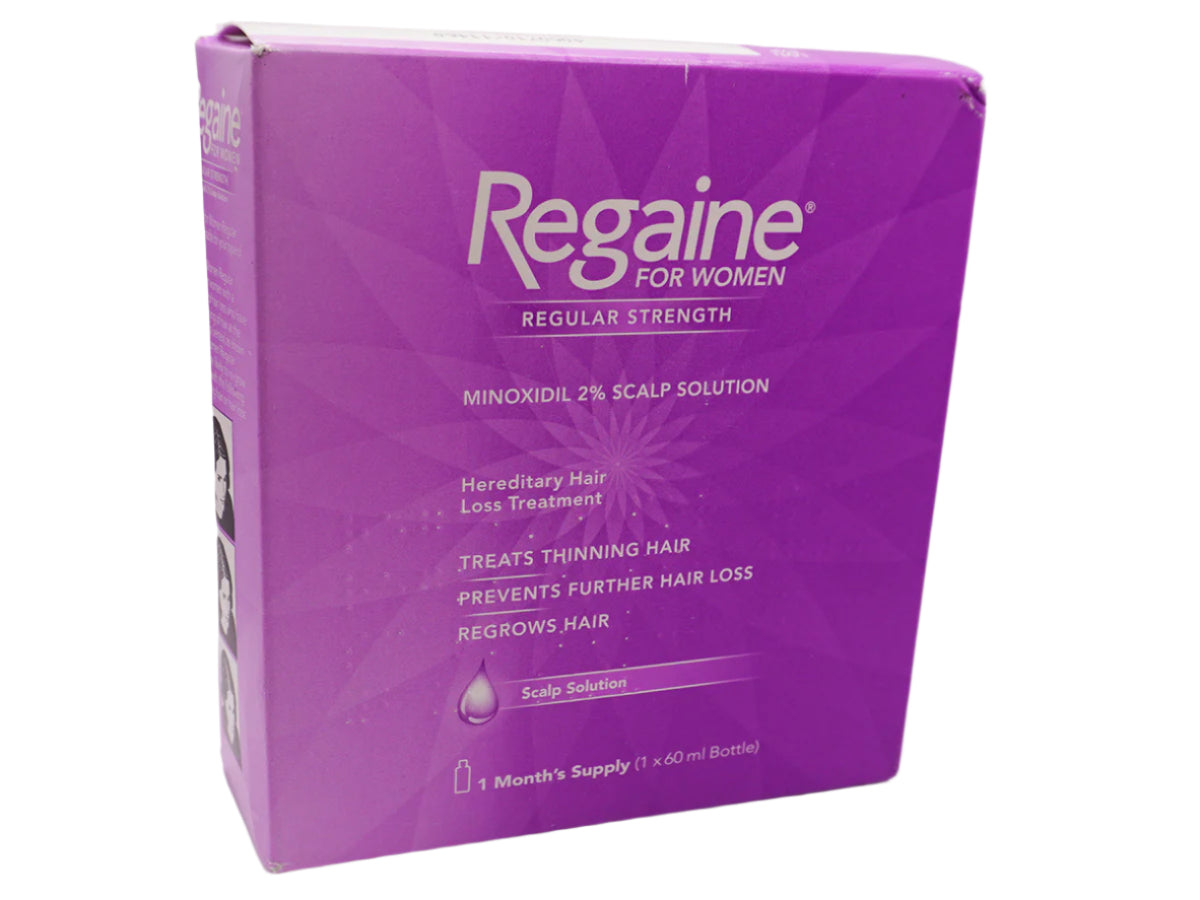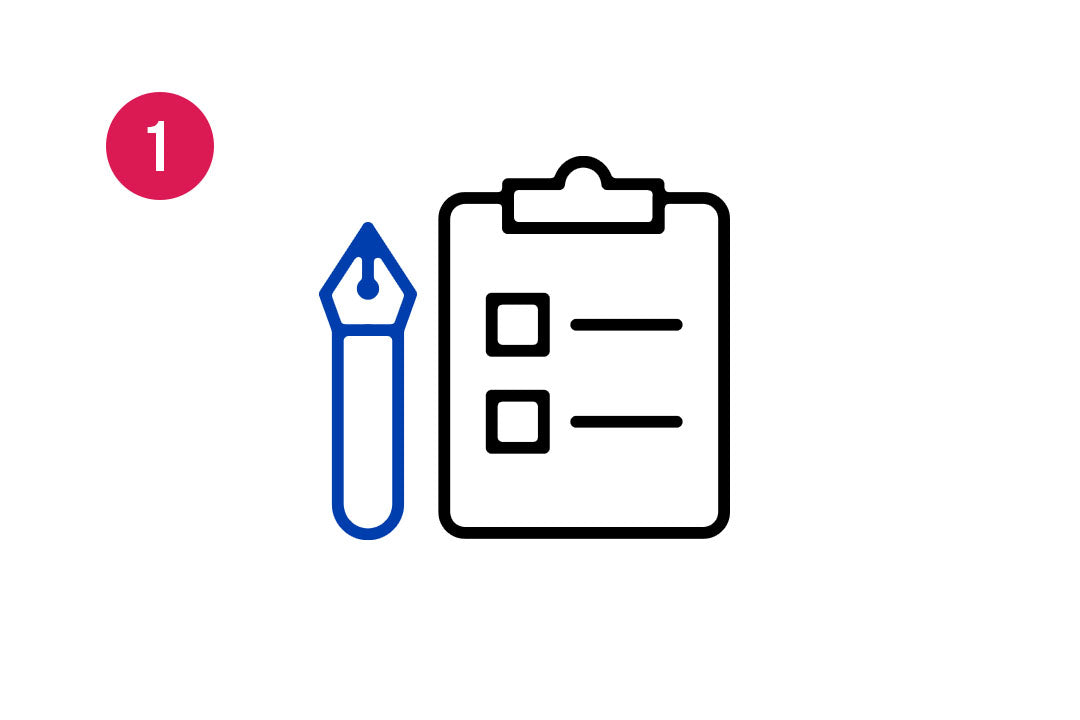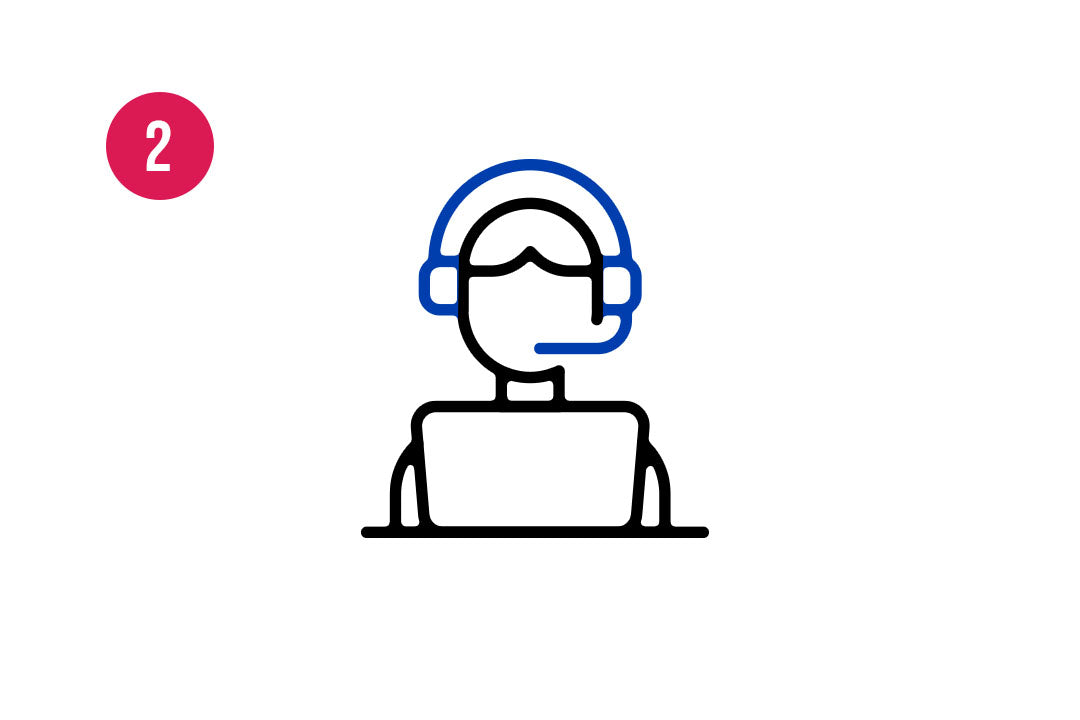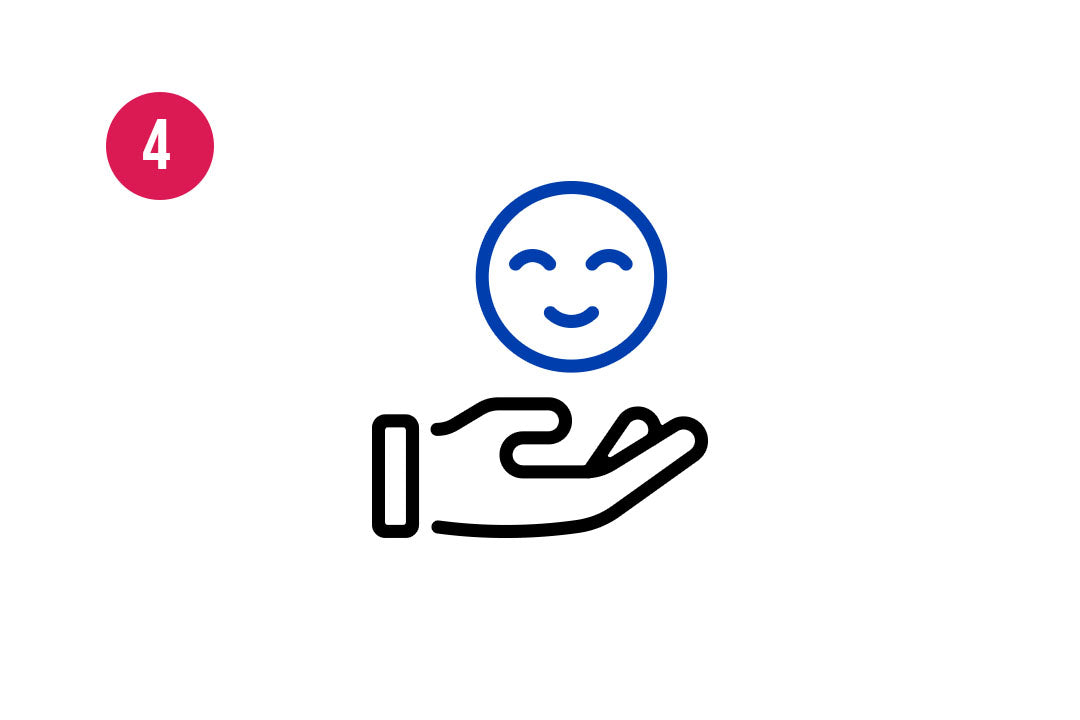🧑🦲💇♀️ Hair Loss Treatments That Work
Clinically Proven Solutions for Hair Loss
Losing hair can be frustrating — but you’re not alone, and there are safe, effective treatments that can help. At Happy Pharmacy, we offer discrete, expert-backed options including Finasteride and Regaine (Minoxidil) for both men and women.
Whether you’re looking to slow down hair thinning, encourage regrowth, or stop hair loss altogether, we’ll help you choose the treatment that’s right for you.
Our Prescription Hair Loss Treatments
Finasteride (For Men Only)
A once-daily tablet that works by lowering DHT levels — the hormone that causes male pattern baldness. Finasteride helps stop hair loss and promotes regrowth in up to 90% of men.
✅ Prescription-only
✅ Effective for the crown and hairline
✅ Results in 3–6 months
✅ Taken daily
Regaine for Men (Minoxidil 5%)
An easy-to-apply topical solution or foam that helps improve blood flow to the scalp and reactivate hair follicles. Clinically proven to slow hair loss and support regrowth.
✅ No prescription needed
✅ Applied directly to the scalp, twice daily
✅ Noticeable results in 2–4 months
Regaine for Women (Minoxidil 2%)
Designed specifically for women experiencing hereditary hair thinning. Helps to restore hair density and slow further loss with consistent use.
✅ No prescription required
✅ Once-daily application
✅ Suitable for women aged 18–65
| 🔍 Feature | Finasteride (Men) | Regaine for Men | Regaine for Women |
|---|---|---|---|
| 🧪 Active Ingredient | Finasteride 1mg | Minoxidil 5% | Minoxidil 2% |
| 📜 Prescription Required | ✅ Yes | ❌ No | ❌ No |
| 👤 Who It's For | Men only | Men (18+) | Women (18+) |
| 📆 How It's Taken | Once-daily tablet | Twice-daily scalp foam/liquid | Once-daily scalp foam/liquid |
| ⏳ Results Timeline | 3–6 months | 2–4 months | 2–4 months |
| 📈 Effectiveness | Up to 90% stop loss, some regrowth | Helps regrowth & slows loss | Slows thinning, some regrowth |
| ⚠️ Side Effects | Rare: libido changes, mood shifts | Scalp irritation, shedding | Scalp irritation, dryness |
| 🏷️ Brand | Generic or branded | Regaine | Regaine |
| 📦 Discreet Packaging | ✅ Yes | ✅ Yes | ✅ Yes |
Our Hair Loss Treatments
Regaine For Men Extra Strength Foam 73ml
Finasteride 1mg tablets
Alpecin C1 Caffeine Shampoo 250ml
Regaine For Women
Working With You
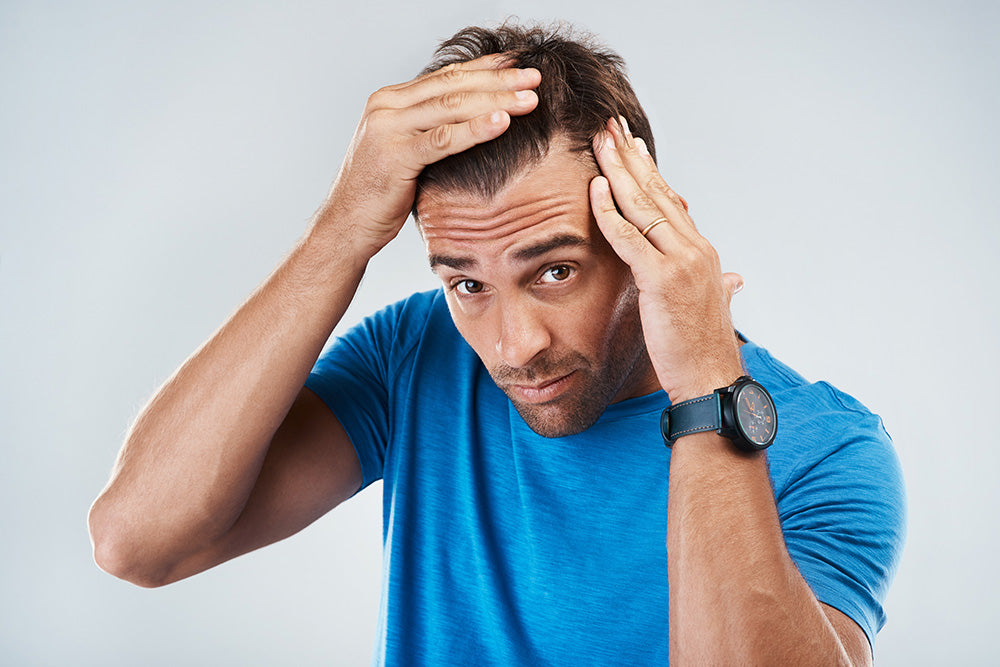
Understanding Hair Loss in Men and Women
Hair loss is a common condition that affects millions of people across the UK, with an estimated 40% of men experiencing noticeable thinning by the age of 35, and over half of women encountering some degree of hair loss by the age of 50. While often associated with ageing, hair loss can also result from genetics, health conditions, and lifestyle factors.
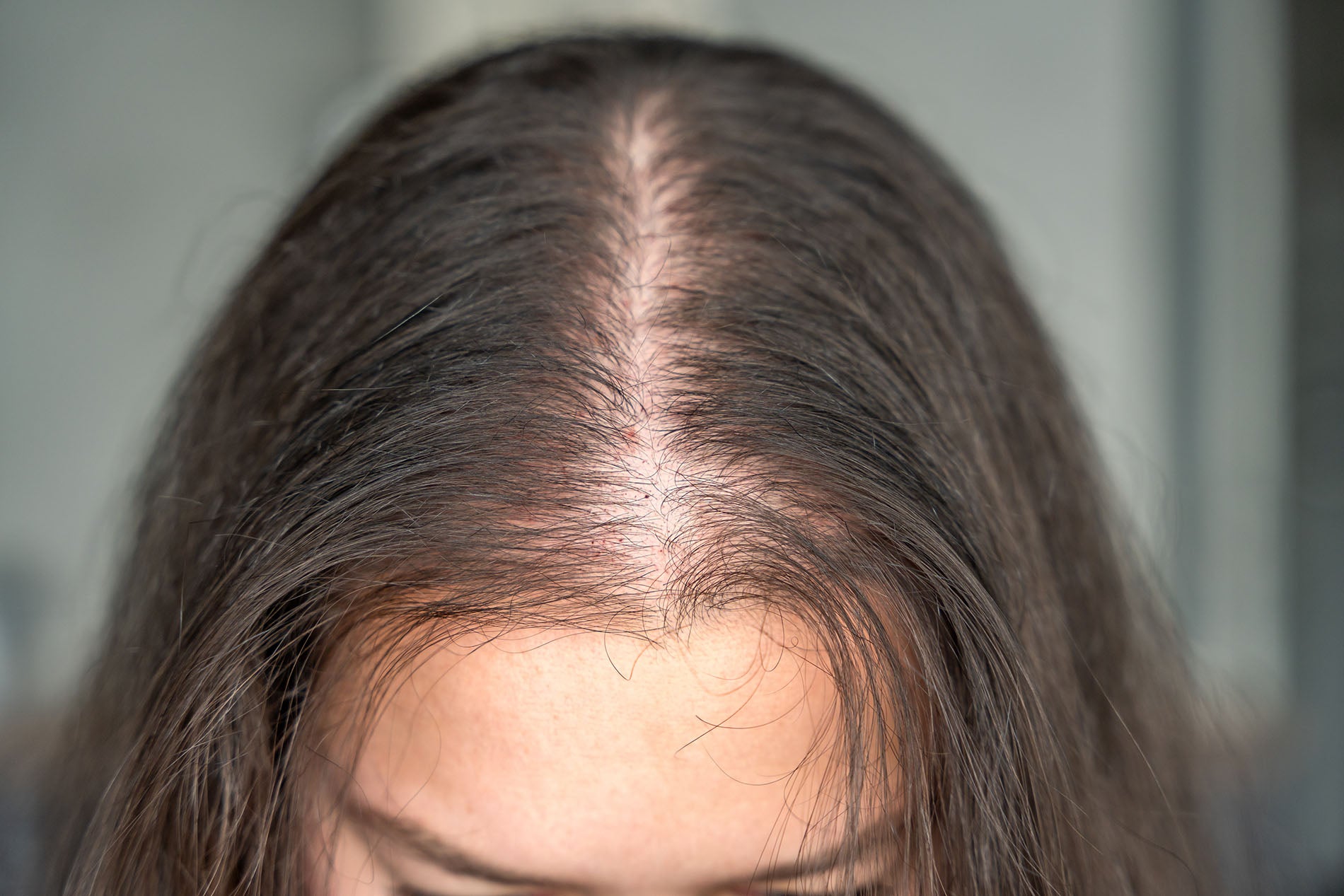
The Impact of Hair Loss
Hair loss can be more than just a cosmetic issue, it often affects self-esteem, confidence, and mental well-being. For men, male-pattern baldness (androgenetic alopecia) is the most prevalent form, typically beginning with a receding hairline or thinning at the crown. Women, on the other hand, tend to experience general thinning or a wider parting, which can be particularly distressing due to societal expectations around hair.
How to stop thinning hair: Hair loss treatment for women
Hair loss in women is more common than many realise, with female pattern hair loss being a leading cause of hair thinning. This common type of hair loss can begin gradually and worsen over time. To stop thinning hair, it's important to identify what’s causing your hair loss, whether it's hormonal changes, stress, or a medical condition. Early treatment can help prevent hair loss from worsening and encourage new hair growth.
Maintaining a healthy diet rich in nutrients that support hair and nails, avoiding excessive heat from hair styling tools, and using gentle hair and scalp products may also help promote healthier hair over time.
About Hair Loss Treatment for Men
Male pattern hair loss is the most common type of hair loss in men, especially men aged 30 and over. Men who use approved hair loss treatments can see a reduction in hair loss and, in some cases, hair regrowth. One of our online doctors can recommend a suitable treatment to help you manage thinning or receding hair.
Treatments include finasteride and minoxidil, which work to prevent hair loss and stimulate hair regrowth. These options may take time to show results, so it’s important to begin treatment as soon as you notice hair loss or thinning hair.
What's the difference between Finasteride and Minoxidil?
Finasteride and minoxidil are both popular hair loss treatments, but they work in different ways.
Finasteride is a prescription tablet that blocks the hormone DHT, which causes hair follicles to shrink in male pattern baldness. It’s prescription only and should be taken daily, it is suitable for men only.
Minoxidil, on the other hand, is a topical treatment available without prescription. It helps improve blood flow to the scalp and stimulate hair growth. It can be used by both men and women.
In short, Finasteride treats the root hormonal cause of hair loss, while minoxidil supports regrowth and many people use them together for best results.
How to treat hair loss
Treating hair loss starts with understanding the type of hair loss you’re experiencing. Whether it's male and female pattern hair loss or another cause, one of our online doctors here at Happy Pharmacy can help determine the best course of action. Certain types of hair loss are reversible, especially when addressed early.
Prescription treatments available for hair loss include finasteride, which works to stimulate hair regrowth and prevent further loss. Over-the-counter hair loss treatments can be less effective for some individuals.
Improving overall health, reducing stress, and eating a nutrient-rich diet are all supportive measures that help keep your hair strong and support new hair growth.
What are the side effects of hair loss treatments?
Hair loss treatments can cause side effects in some people. Common side effects associated with hair loss medicines include scalp irritation, dryness, or itching. Oral treatments may have hormonal side effects and should only be taken under the guidance of a doctor.
In rare cases, treatments can cause side effects such as dizziness or changes in libido. It’s important to monitor how your body reacts and stop using any product that causes discomfort. Always speak to a medical professional before starting or stopping treatment.
Stop and reverse hair loss
While not all types of hair loss are reversible, you can often stop and even reverse hair loss if you act early. Treatments like finasteride and minoxidil can help stimulate hair regrowth and prevent hair loss progression. Addressing the root cause of your hair loss, whether it's hormonal, genetic, or stress-related is key to managing and improving your hair health.
FAQs
Common Causes of Hair Loss
Hair loss in both men and women can stem from a variety of factors, including:
Genetics: Hereditary hair loss is the leading cause of male and female-pattern baldness.
Hormonal Changes: Menopause, pregnancy, or thyroid issues can disrupt the hair growth cycle.
Stress: Physical or emotional stress may cause temporary hair shedding (telogen effluvium).
Medical Conditions: Autoimmune diseases like alopecia areata, scalp infections, or nutritional deficiencies.
Lifestyle Factors: Poor diet, harsh hair treatments, and over-styling can lead to weakened hair.
How to Start Your Hair Loss Treatment
Complete an Online Consultation: Share details about your hair loss and medical history.
Receive Personalised Advice: Our healthcare professionals will recommend the most suitable treatments for your needs.
Order Your Medication: Once approved, your treatment will be discreetly delivered to your home.
Why Early Action Matters
Hair loss treatments are most effective when started early. Whether you’ve just noticed thinning or are experiencing significant hair loss, taking proactive steps can slow down the progression and even reverse some of the effects.
Can hair grow back after thinning?
Yes, depending on the cause of your hair loss, hair can grow back. If hair loss is temporary or related to stress or hormones, treatment can result in hair regrowth. Begin treatment early to encourage new hair growth.
Are hair loss treatments covered by insurance
Hair loss treatments are generally not covered by NHS or private insurance, as they are considered cosmetic. You can order online from licensed providers like Happy Pharmacy.
Which hair loss treatment is best
The best treatment depends on the type of hair loss and your personal health profile. Finasteride and minoxidil are effective for male pattern hair loss. For women, minoxidil is the only approved topical treatment. An online consultation with one of our pharmacists is the best way to identify the most suitable option.
What should I do if I forget to use my hair loss treatment one day?
If you miss a dose of your hair loss treatment, simply resume your usual schedule the next day. Do not double up to make up for the missed dose, as this won’t speed up results and may increase the risk of side effects. Consistency is key, so try to use the treatment at the same time each day.
Do hair loss treatments make your hair thicker?
Yes, prescription treatments like finasteride can help thicken existing hair by stimulating hair regrowth and improving hair density. While results vary, regular use often leads to the appearance of fuller, healthier hair over time.
How do you know if you’re shedding too much hair?
It’s normal to lose around 100 strands of hair per day. If you notice significantly more shedding or thinning areas of your scalp, it could be a sign of pattern hair loss or another condition. One of our online pharmacists can help assess what’s causing your hair loss and recommend the right treatment.
Can low testosterone cause hair loss?
Yes, low testosterone can contribute to hair loss, particularly in men. Hormonal imbalances may disrupt the hair growth cycle and cause your hair to thin. If you're concerned, it’s worth discussing hormone testing with a medical professional to determine the cause of your hair loss.
References
Hair Loss information - NHS
Women & Hair Loss coping tips - NHS
Male Pattern Hair Loss - Patient.info
Female Pattern Hair Loss - British Association of Dermatologists
Female pattern hair loss (female androgenetic alopecia) :
Topical minoxidil- National Institute for Health and Care Excellence (NICE)
Male pattern hair loss (male androgenetic alopecia) - National Institute for Health and Care Excellence (NICE)

Palvinder Deol, GPhC Number 2047066
GPhC-registered Superintendent Pharmacist with over 25 years of experience in pharmaceutical care. Pavel Graduated from as a qualified pharmacist from the University of Bath in 1997.

Nigel Howard, GPhc Number 2047450
GPhC-registered Independent Prescriber with extensive experience in primary care and clinical pharmacy. Nigel qualified as a pharmacist in 1997 and has since specialised in prescribing for a wide range of health conditions.
Last reviewed: 11th August 2025

